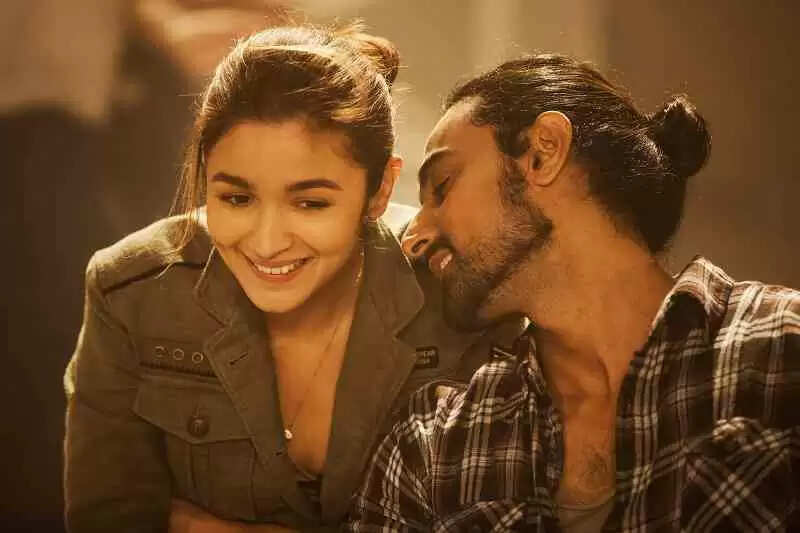Exploring Relationships in 'Dear Zindagi': A Cinematic Journey

A Unique Take on Modern Relationships
The film Dear Zindagi opens with an extensive prelude filled with soft-focus visuals, light-hearted exchanges, and charming close-ups of Alia Bhatt, who portrays a young cinematographer grappling with romantic confusion. Initially, these elements seem to lead to an unclear narrative.
However, the film's writer and director, Gauri Shinde, eventually shifts focus to a crucial question: Can a woman in her twenties develop feelings for her significantly older therapist, played by Shah Rukh Khan?
In this film, Khan presents a version of himself that is devoid of the exaggerated charm that some adore and others have come to dislike. Yet, he remains the quintessential Shah Rukh Khan, embodying joy, affection, and selfless love.
As Jehangir, Khan listens attentively while Kaira (Bhatt) reveals a family secret that has hindered her emotional growth. He responds with a calm professionalism, tinged with a hint of regret. These moments, skillfully crafted and emotionally resonant, breathe life into Dear Zindagi.
A more daring film might have reversed the dynamic, showcasing a woman who, after a series of romantic failures, learns to navigate her own path rather than relying on an older partner. Instead, Dear Zindagi opts for a familiar narrative while attempting to refresh the typical Bollywood love story.
Kaira is depicted as a beautiful woman struggling to maintain lasting relationships. Her romantic history includes a failed relationship with Sid (Angad Bedi), a breakup with Raghuvendra (Kunal Kapoor), and a flirtation with Rumi (Ali Fazal). Unlike some who may never find love again, Kaira faces an abundance of romantic options.

Shinde’s film diverges from her earlier work, English Vinglish, yet shares a penchant for idealized beauty, wish fulfillment, and a reluctance to delve into the complexities of life. Kaira, despite her struggles, appears remarkably unscathed when she finally visits her attractive life coach disguised as a therapist. Although she claims to suffer from insomnia, she shows no signs of fatigue.
Jehangir’s straightforward advice helps Kaira confront her commitment issues. One of his memorable analogies compares choosing a chair to selecting a partner, suggesting that variety is essential in both love and furniture. This newfound perspective raises the question: Can Kaira truly let go of her past and embrace her feelings for Jehangir before the film concludes?
Kaira's journey to Jehangir is convoluted. Despite her privileged background as a cinematographer, she hesitates to see a therapist. Ultimately, she agrees to become Jehangir’s patient after he demonstrates his irreverent humor and a modern take on the Shah Rukh Khan persona of the 1990s.
Her relationships with her parents and friends (including performances by Ira Dubey and Yashaswini Dayama) receive little scrutiny. A more critical director might have highlighted Kaira’s self-centeredness and the chaos she leaves behind. However, Shinde’s affection for both Kaira and Bhatt prevents any disruption of the film's idyllic portrayal.
Many scenes exhibit a refreshing improvisational feel, and while they may not form a cohesive narrative, they showcase Bhatt as one of her generation's most captivating actresses, effortlessly delivering lengthy dialogues and evoking strong emotions. Khan, in turn, tempers his flamboyance, acknowledging the evolution of Hindi cinema.
Nevertheless, the film’s resolutions often feel overly simplistic. Amit Trivedi’s background music tends to emphasize points already made in the dialogue, which is presented in both Hindi and English.
“Genius is knowing when to stop,” Jehangir advises Kaira, yet this wisdom seems overlooked throughout the film's 150-minute runtime. In their first session, Jehangir suggests that Kaira take the easier path to happiness, questioning why she should climb a mountain when a stroll in the park is an option. Only a movie star can deliver such clichéd sentiments with genuine sincerity. Since Dear Zindagi does not stray from the core elements of Bollywood romance, it remains enjoyable.
